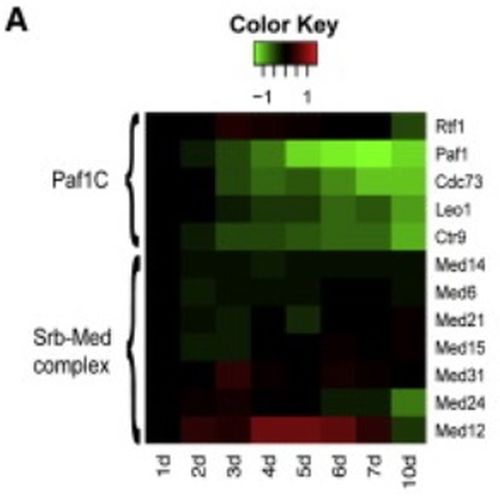A genome-scale RNAi screen for Oct4 modulators defines a role of the Paf1 complex for embryonic stem cell identity.
Pluripotent embryonic stem cells (ESCs) maintain self-renewal while ensuring a rapid response to differentiation cues. The identification of genes maintaining ESC identity is important to develop these cells for their potential therapeutic use. Here we report a genome-scale RNAi screen for a global survey of genes affecting ESC identity via alteration of Oct4 expression. Factors with the strongest effect on Oct4 expression included components of the Paf1 complex, a protein complex associated with RNA polymerase II. Using a combination of proteomics, expression profiling, and chromatin immunoprecipitation, we demonstrate that the Paf1C binds to promoters of key pluripotency genes, where it is required to maintain a transcriptionally active chromatin structure. The Paf1C is developmentally regulated and blocks ESC differentiation upon overexpression, and the knockdown in ESCs causes expression changes similar to Oct4 or Nanog depletions. We propose that the Paf1C plays an important role in maintaining ESC identity.

- Cell Stem Cell 2009 May 8;4(5):403-15
- 2009
- Cell Biology
- 19345177
- PubMed
Enabled by:
